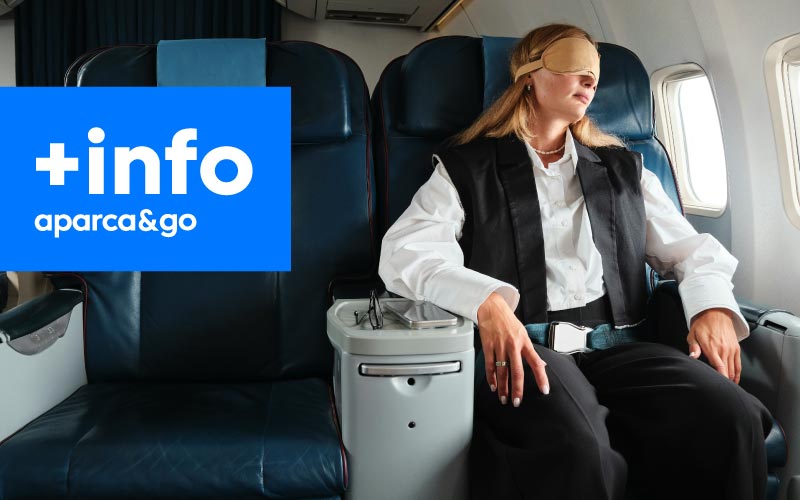Flight insurance: a guide to flying with peace of mind

When planning your vacation, you focus on choosing the hotel, finding the best flight combination, booking guided tours, and even checking restaurant reviews. However, travel insurance often falls to the bottom of your priority list. Not because it’s unimportant, but simply because you tend to postpone it out of sheer laziness. Admittedly, it’s not the most exciting part of trip planning. Still, you should highlight it in yellow on your checklist: it’s the safety net that has your back when things go wrong.
Among the wide range of travel insurance options, flight insurance deserves special attention, as it covers unexpected events that can turn your dream getaway into a real headache.
Why do you need flight insurance?
Depending on the nature of your trip, you might not see the need to take out full travel insurance. For example, if you're visiting relatives, staying at their home, and not planning any excursions or special activities, you might not consider a policy that covers medical assistance, theft, or tour cancellations essential. However, your plane ticket remains crucial, and an issue with your flight could completely disrupt your plans.
In these cases, specific flight insurance is a practical solution: it protects you against delays, cancellations, missed connections, or lost luggage, with faster and more effective coverage than general insurance typically offers. So, even if you don’t purchase comprehensive travel insurance, you can still travel with the peace of mind that the most common flight-related issues are covered.
What should good flight insurance cover?
- Delays over three hours: A good policy should compensate you for each extra hour at the airport, meals, drinks, and accommodation if necessary.
- Flight cancellation or interruption: If the airline doesn’t offer a satisfactory alternative, the insurance can reimburse the non-refundable ticket and related expenses (taxi to the airport, missed hotel nights, etc.).
- Cancellation for justified cause: If you or a direct relative becomes ill or suffers an accident before the flight, the insurance can refund the ticket, even a non-refundable one. You just need a medical report proving you're unable to travel.
- Missed connection: If a delay causes you to miss your next flight, the insurance covers costs to resume your itinerary: a new ticket, transportation, and accommodation if needed.
- Delayed or lost baggage: It should include a daily allowance to buy essentials (clothing, hygiene products) and compensation if your bag never shows up.
- Airline insolvency: If the company goes bankrupt and your flight is cancelled, the policy should cover the ticket cost. Be sure your insurance includes SQA Guarantee or similar.
Tips for buying flight insurance
- Use a specialised comparison tool. Don’t go with the first offer. Compare coverage limits, deductibles, and exclusions on specialised comparison websites.
- Check for 24/7 customer support. When calling your insurer, you shouldn’t worry about the phone bill. Choose a company offering free assistance by phone or app/WhatsApp, ideally in a language you’re fluent in.
- Tailor the policy to your trip. If you have a long layover with a tight connection, ensure strong missed connection coverage; if you fly to remote destinations on budget airlines, boost your coverage for airline insolvency.
- Consider policies for two or more people. If you travel with a partner or friend and one has an issue, a joint policy may also cover transport and accommodation for the companion. Plus, buying together can save you money.
- Buy in advance. The sooner you do it, the better protected you'll be—and you may get lower rates.
How to use your flight insurance
- Request a PIR (Property Irregularity Report) if your luggage is lost or delayed.
- Obtain a certificate from the airline confirming the delay or cancellation (an email or official document).
- Contact your insurer immediately; the sooner you notify them, the faster your claim will be processed.
- Keep all receipts for extra expenses (meals, hotel, transport…) and submit them with the airline report when you file your claim.
- Respect deadlines: Most policies require you to claim within 30 days of the incident. Check your policy’s exact terms carefully.
Your car wants to be safe while you fly, too
At aparca&go, we know your journey starts the moment you leave home. Our secure parking service with quick airport transfers lets you park near the airport worry-free. Plus, while you're flying, we can take care of your car’s cleaning and roadworthiness inspection (ITV). When you return, it’ll be ready to hit the road again.
This way, you combine tailored flight insurance with the peace of mind of knowing your car is in the best hands.
With this final tip and our guide, you have everything you need to choose, purchase, and get the most out of your flight insurance. Bon voyage and safe landing!












 " />
" />